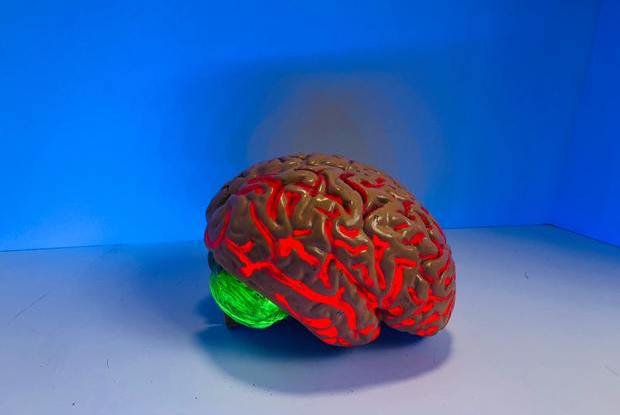Table of Contents
III. Psychological causes of ED
What is causing your ED?
Overview
Erectile dysfunction can have a substantial effect on a man’s personal life, affecting over 30 million men in the United States. Many factors can bring on this condition and they vary from person to person. Lifestyle choices and pre-existing illnesses play a large role in ED. These are the most common causes of ED, but for some men, psychological issues are the root of their problem.
Those with erectile dysfunction have a problem getting and maintaining an erection during sexual intercourse. There are several oral medications like generic Viagra and generic Cialis that can stimulate blood flow to the penis during sexual stimulation, but oral medications may only fix part of the problem. Read on to learn more about the physical and psychological causes related to erectile dysfunction. [1]
Physical causes of ED
Erectile dysfunction is a good indicator of the healthiness of your heart and blood vessels. Maintaining erections relies on proper blood flow to the penis, so if you have a condition that inhibits circulation, then ED can occur. Several diseases are often linked to erectile dysfunction in men.
Endocrine diseases
The endocrine system is responsible for producing hormones and regulating your metabolism, sexual function, mood, and reproduction. Diabetes is a type of endocrine disease and occurs when the body cannot properly process insulin. Impotence can occur with diabetes because of blood sugar level swings in the body.
During sexual arousal, a chemical called nitric oxide is produced, which causes the muscles in the penis to relax and arteries to fill with blood. The blood sugar swings associated with Diabetes reduces the amount of nitric oxide, which can lead to ED. Diabetes can also cause nerve damage, which affects penis sensations.

Neurological disorders
Neurological disorders affect the brain’s ability to communicate with the reproductive system. This problem can affect your ability to achieve an erection. Some neurological disorders that often lead to ED include:
- Alzheimer’s disease
- Parkinson’s disease
- Stroke
- Multiple Sclerosis (MS)
Heart conditions
As mentioned earlier, the heart’s ability to pump blood throughout the body is closely linked to erectile problems. If you suffer from a condition that affects the heart and its ability to pump blood then you may suffer from impotence. If you have clogged blood vessels (atherosclerosis) then ED can soon follow. High cholesterol and hypertension (high blood pressure) also come with an increased risk of impotence. [2]
In some cases, erectile dysfunction can indicate potential heart problems. It can indicate a dysfunction of the lining of the blood vessels (endothelium) and smooth muscle. If you have endothelial dysfunction then you have impaired blood flow to the penis. This condition also includes a predisposition to clogged blood vessels. [3]
Psychological causes of ED
Men should seek the advice of their doctor if they are experiencing ED, but tests and medication may not reveal the true cause behind a man’s impotence. Psychologically linked ED is much harder to detect and a patient must have open communication with their doctor to help make a proper diagnosis. The mind and body are intricately connected and if you are suffering from psychological issues, then your sex life may be affected. Some psychological causes of ED may include:
Anxiety
Anxiety may seem like a condition that only exists in your head, but it can manifest itself in physical ways if proper treatment is not sought. Anxiety can cause increased heart rate, blood pressure issues, and fatigue. These factors can soon bleed over into your sex life. Anxiety is the leading psychological cause of ED and a person should seek the help of a professional therapist for treatment.
Stress
Stress is a condition that everyone has experienced at one time or another. Stress can take up a lot of mental energy and it can soon affect your sexual performance. Something as simple as a presentation at work can cause problems in your sex life.

Depression
Depression affects all aspects of your mind and body and sexual health is no exception. Many men do not recognize their symptoms of depression and it can go untreated for years if they are reluctant to seek help. If you go on the proper antidepressants then your sexual desire and function should return to normal.
Fear
If a man suffers from ED once or twice due to stress or a pre-existing condition, then he could get in his head about satisfying his partner. You may be worried that you’ll never regain your sexual function and this could create a whole new psychological problem. This cycle can continue until you seek the advice of your doctor.
Medications
Certain medications you take may affect blood flow in your body and have the potential to create sexual health problems. If you experience ED you should never stop taking your medication, but consult your doctor if your ED condition persists. Some medications that may cause ED can include:
- Beta-blockers
- Chemotherapy medications
- Selective serotonin reuptake inhibitors (SSRIs) used in antidepressants
- Synthetic hormones
- Central nervous system (CNS) depressants
- Diuretics

Treatment
If you have a pre-existing physical condition, it is always smart to keep an open communication with your healthcare team. Your doctor can put you on different medications in order to combat the sexual effects of some medications. Medications like Viagra and Cialis work well to improve blood flow to the penis during sexual stimulation, but more drastic measures may need to be taken. Treatment depends on the state of your mind and body.
Psychological effects can be much harder to treat because stress and anxiety are intangible symptoms that can’t be measured on a scientific scale. If you are experiencing anxiety or stress and it’s affecting your sex life, then you may need to seek talk therapy. This treatment can give you, or you and your partner, a place to have a productive dialogue to determine what is the root cause of your erectile dysfunction. [4]
The content in this article is intended for informational purposes only. This website does not provide medical advice. In all circumstances, you should always seek the advice of your physician and/or other qualified health professionals(s) for drug, medical condition, or treatment advice. The content provided on this website is not a substitute for professional medical advice, diagnosis or treatment.
